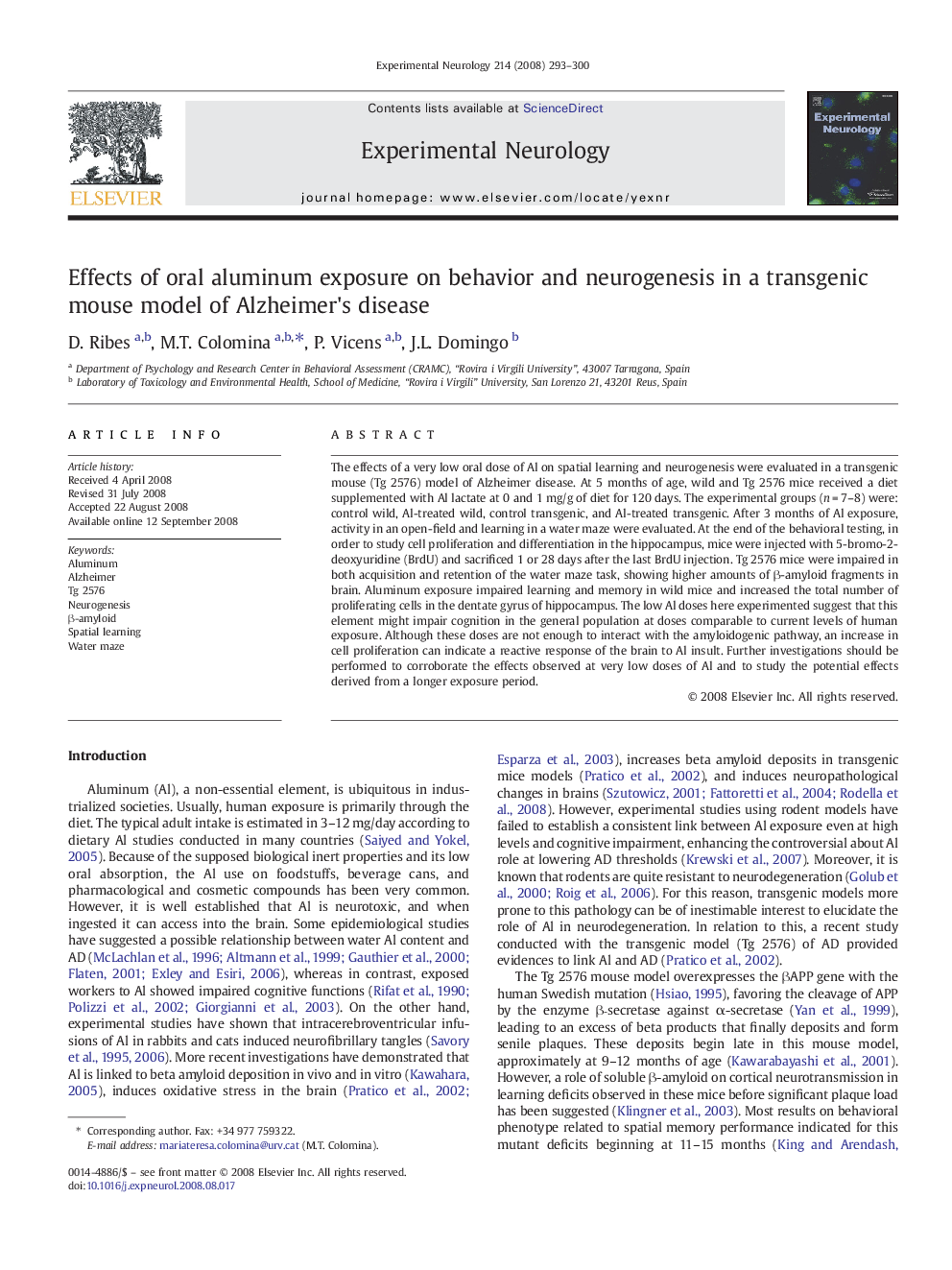| Article ID | Journal | Published Year | Pages | File Type |
|---|---|---|---|---|
| 3056530 | Experimental Neurology | 2008 | 8 Pages |
The effects of a very low oral dose of Al on spatial learning and neurogenesis were evaluated in a transgenic mouse (Tg 2576) model of Alzheimer disease. At 5 months of age, wild and Tg 2576 mice received a diet supplemented with Al lactate at 0 and 1 mg/g of diet for 120 days. The experimental groups (n = 7–8) were: control wild, Al-treated wild, control transgenic, and Al-treated transgenic. After 3 months of Al exposure, activity in an open-field and learning in a water maze were evaluated. At the end of the behavioral testing, in order to study cell proliferation and differentiation in the hippocampus, mice were injected with 5-bromo-2-deoxyuridine (BrdU) and sacrificed 1 or 28 days after the last BrdU injection. Tg 2576 mice were impaired in both acquisition and retention of the water maze task, showing higher amounts of β-amyloid fragments in brain. Aluminum exposure impaired learning and memory in wild mice and increased the total number of proliferating cells in the dentate gyrus of hippocampus. The low Al doses here experimented suggest that this element might impair cognition in the general population at doses comparable to current levels of human exposure. Although these doses are not enough to interact with the amyloidogenic pathway, an increase in cell proliferation can indicate a reactive response of the brain to Al insult. Further investigations should be performed to corroborate the effects observed at very low doses of Al and to study the potential effects derived from a longer exposure period.
